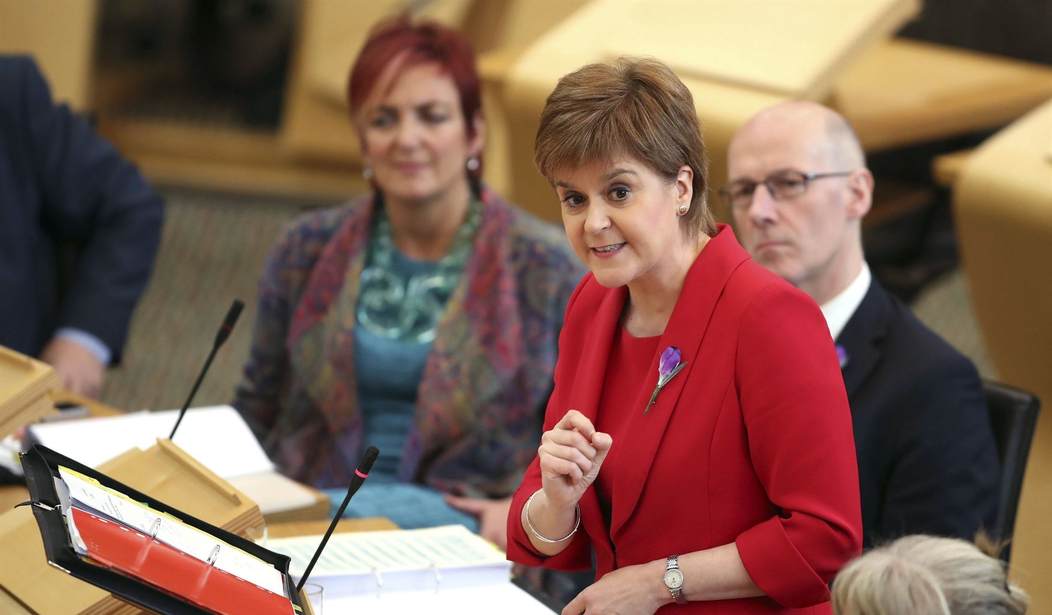Scottish First Minister Nicola Sturgeon resigned on Tuesday after a controversial transgender recognition bill was vetoed by the British government last month — a measure that had cost her support in the Scottish National Party.
Sturgeon will stay in office until a new First Minister is chosen. But the aftermath of the failed bill promises to play into not only the debate over transgender rights but also the discussion about Scottish independence — a cause that Sturgeon led for a decade.
The transgender recognition bill would have allowed anyone 16 or older to change their legal gender without a medical diagnosis and reduce the required time for living with the new gender from two years to three months. A majority of Scots opposed the bill and supported London’s decision to veto it.
Related: UK Government Blocks Scotland’s New Gender Recognition Law
That and Sturgeon’s inability to successfully push for another independence referendum made her position untenable.
While Sturgeon underlined that she felt she didn’t have enough left in the tank to perform her duties, her list of political headaches has grown. The SNP’s polling has dipped, making a dent in its grip on Scottish politics. The independence movement has stalled, with no real chance of a referendum on the cards any time soon.
She has lost support in her party since she attempted to introduce the controversial bill on gender identification, with some polls suggesting a majority of Scots supported the decision of the UK government to use its powers to block the proposal. And her husband was caught in a scandal at the end of last year, after it was reported he had personally loaned the SNP £100,000.
In short, having dominated Scottish politics for eight years, wielding the independence baseball bat and regularly using it to batter the UK government, Sturgeon might have decided to quit before her legacy is tarnished by failure.
Last November, the British Supreme Court ruled that the Scottish government cannot unilaterally hold a second independence referendum. The 2014 independence referendum was rejected by a resounding majority of 55-45, and successive British prime ministers have refused the request of Scotland to hold another.
Polls show that if another independence referendum were held today, it would fail again.
Theresa May, Boris Johnson, Liz Truss and Rishi Sunak, four consecutive Conservative prime ministers, didn’t entertain the idea. It also seems very unlikely that Keir Starmer, the leader of the official opposition Labour Party, would give any boost to the idea, given that Labour needs to win seats in Scotland in order to win a UK parliamentary majority.
The SNP is due to have a special conference on independence next month. It is now likely it will go into that conference divided and without any certainty of its direction. All of which will make those opposed to independence very happy indeed.
The tide in favor of independence has, at least temporarily, ebbed, and Sturgeon — closely identified with independence — is no longer a leader fit for the times. She was right to resign, especially after her blunder with the transgender recognition bill.










Join the conversation as a VIP Member